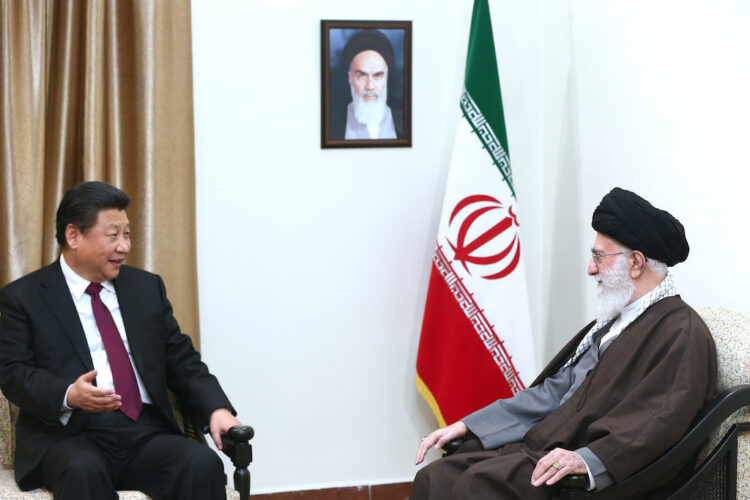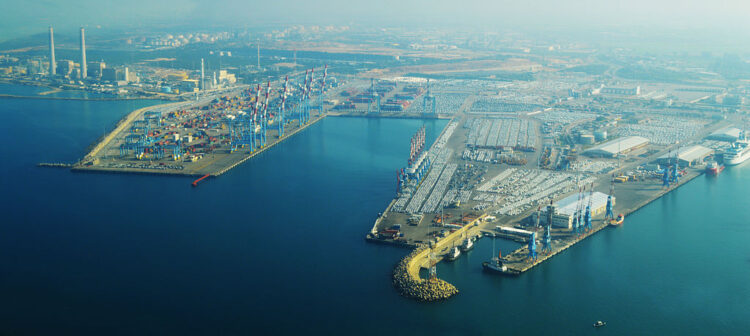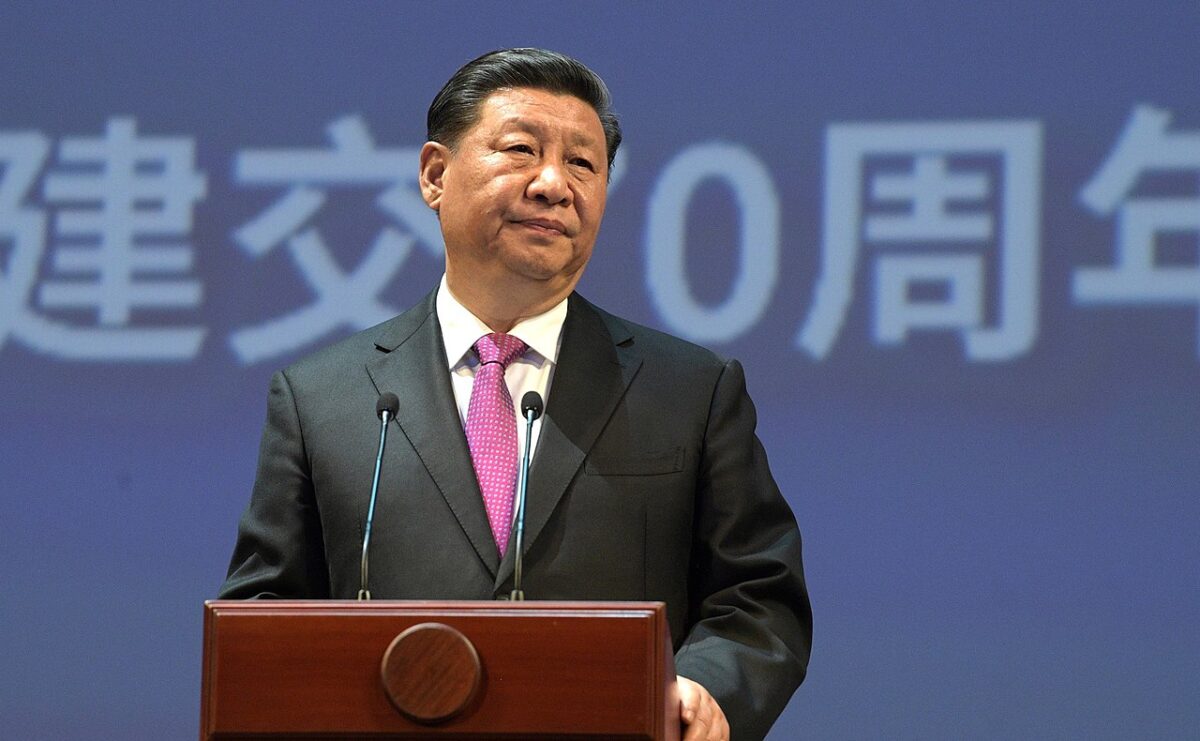China, once a minor player in the Middle East, is expanding its influence throughout the region, both in the Muslim world and Israel.
Until quite recently, the Middle East was virtually the preserve of two major powers, the United States and Russia. But in recent years, China has begun catching up.
There is no better illustration of this trend than China’s non-ideological, business-oriented relationship with the Islamic Republic of Iran, a ferocious foe of the United States and its ally, Israel.
Last March, China and Iran signed a 25-year agreement that calls for $400 billion worth of Chinese investment capital to be poured into Iran’s economy in exchange for a heavily discounted supply of Iranian oil to fuel its burgeoning economy. China will invest these funds in a multitude of fields ranging from railways and ports to banking and information technology.
Under the accord, China will also deepen its military cooperation with Iran in joint training and exercises, intelligence-gathering, and research and weapons development.

Last month, Iranian Foreign Minister Hossein Amir-Abdollahian visited Beijing to further expand their comprehensive strategic partnership, which was signed by Iran’s former foreign minister, Mohammed Javad Zarif, and his Chinese counterpart, Wang Yi. After signing the agreement, Zarif said, “China is a friend for hard times. The history of cooperation between two ancient cultures of Iran and China dates back centuries.”
The agreement, initially proposed by the leader of China, Xi Jinping, during a visit to Iran in 2016, reflects China’s ambition to play a bigger role in the Middle East and, perhaps, to challenge the United States there.

As a spokeswoman of China’s Foreign Ministry, Hua Chunying, said, “For the region to emerge from chaos and enjoy stability, it must break free from the shadows of big-power geopolitical rivalry, stay impervious to external pressure and interference and explore development paths suited to its regional realities. It must build a security architecture that accommodates the legitimate concerns of all sides.”
In plain language, China’s agreement with Iran offers tangible benefits to two countries whose relations with the United States are either adversarial or simply hostile.
The agreement probably is bound to strengthen China’s foothold in the region and give the Chinese government greater access to Iranian oil.
By the same token, the agreement will likely undercut the effectiveness of crippling U.S. sanctions against the Iranian regime, enable Iran to advance its nuclear program and build its ballistic missile and drone arsenal, and allow Iran to funnel funds to “axis of resistance” allies such as Hezbollah and Hamas.
Much to the consternation of Israel and Sunni monarchies in Saudi Arabia, the United Arab Emirates and Bahrain, the agreement could significantly enhance Iran’s already formidable military capabilities.
But as observers have noted, Sino-Iranian military cooperation is nothing new. China, Iran and Russia conducted exercises in the Indian Ocean in 2019 and in Russia a year later.
The missiles fired by Iran at a U.S. base in Iraq in 2020, following the assassination of the commander of the Quds Force, Qassem Soleimani, may have been developed with Chinese missile technology.
China’s bilateral relations with Iran are an integral component of its Belt and Road Initiative, an ambitious plan to build and upgrade international infrastructure so as to strengthen its export economy. With this objective in mind, China has invested huge sums in critical infrastructure in the Arab world, Iran and Israel.
In addition, China — the world’s largest importer of crude oil — purchases almost half its supplies from Arab states, primarily Saudi Arabia, and is the biggest trading partner of the majority of Middle Eastern nations.
Arab regimes, particularly those accused of human rights violations, appreciate China’s policy of non-interference in the internal affairs of other countries. In return, Arab leaders have refrained from criticizing China’s treatment of its Muslim Uyghur minority, its crackdown on protesters in Hong Kong, and its confrontational approach toward Taiwan.

As one observer put it recently, “For Middle Eastern countries, the benefits of the relationship (with China) are clear: China promises to be a long-term buyer of oil and gas and a potential source of investment, without the political complications involved in doing business with the United States.”
Israel, its small size notwithstanding, is a vital cog in China’s strategy. As the Rand Corporation says, “Chinese investments in Israel have grown substantially and include investments in high-tech companies that produce sensitive technologies as well as the construction and operation of key infrastructure projects. Chinese investment in sensitive technologies and construction of major Israeli infrastructure projects present distinct concerns for Israel and the United States.”

One of China’s key infrastructure projects in Israel is the construction of a commuter rail line in Tel Aviv. China, as well, has won contracts to manage the ports of Haifa, Ashdod and Eilat.
These are important endeavors for China, but China’s $400 billion deal with Iran stands head and shoulders above all the others in the Middle East.
